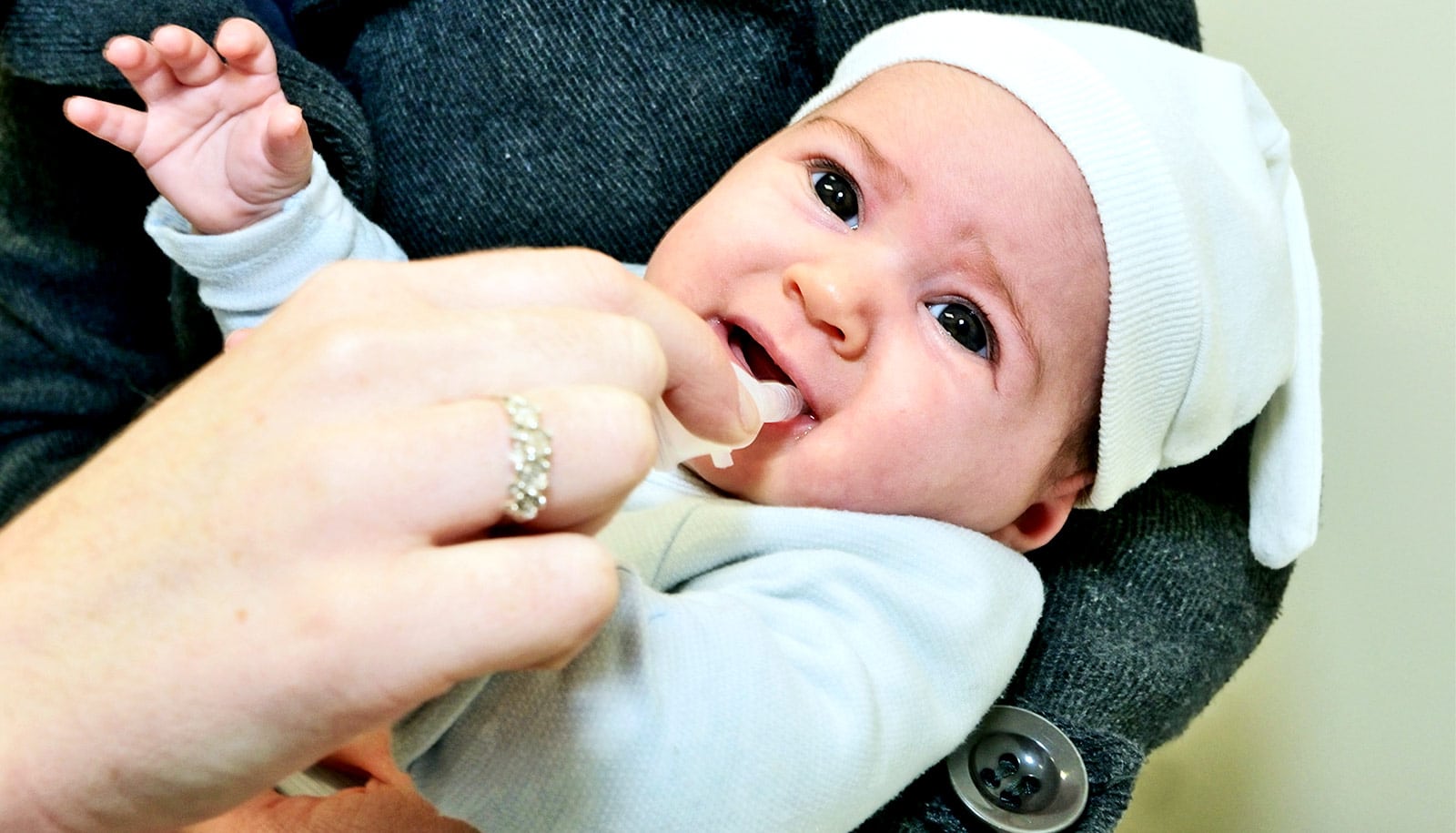Researchers have identified bacteria in the contents of children’s microbiomes that are believed to contribute to the development of neurodevelopmental disorders, years before the children are diagnosed.
Changes to the microbiome, the community of microorganisms inside the body, were correlated with future neurodevelopmental disorder diagnoses, as well as environmental factors and even common treatments for young childhood ear infections.
The researchers conducted the study using data collected over 20 years from 16,440 Swedish children participating in the All Babies in Southeast Sweden (ABIS) cohort. Of these children, 1,197, or 7.28%, developed a neurodevelopmental disorder.
The researchers analyzed data from the first five years of life, examining biological and environmental factors that may influence the presence, depletion, or absence of certain bacteria linked to the development of autism, ADHD, intellectual disability, and speech disorders.
They analyzed umbilical cord blood taken from the children at birth and stool samples collected at 1 year old to study the children’s microbiomes and identify the earliest risk factors for future neurodevelopmental disorders. The children’s parents also supplied data by answering more than 800 survey questions throughout their early childhood to ascertain cognitive function, social behavior, and environment.
The research team found striking differences in the gut microbiomes of infants with future neurodevelopmental diagnoses. These differed by diagnosis, but there were also common themes.
Many gut-health promoting bacteria, including Akkermansia, Bifidobacterium, Ruminococcus, and Faecalibacterium, were deficient in infants with future diagnoses of neurodevelopmental disorders. The correlation with future diagnosis was strong, upheld even after the researchers accounted for confounding factors like mode of delivery, diet, psychosocial vulnerability, and toxic exposures.
Among the study’s most surprising findings was the correlation between neurodevelopmental disorders and the treatment of early childhood ear infections with antibiotics like penicillin, says Eric Triplett, professor and chair of the University of Florida/Institute of Food and Agricultural Sciences (UF/IFAS) microbiology and cell science department and a corresponding author of the study published in the journal Cell.
Children who experienced three or more ear infections requiring penicillin between birth and age 5 were 3.89 times more likely than those in the control group to develop a speech disorder, 3.27 times more likely to develop ADHD, and 2.44 times more likely to develop an intellectual disability, according to the findings.
Those who experienced ear infections three or more times between the ages of 1 and 2.5 years old were 1.74, 1.75, and 2.13 times more likely of later being diagnosed with autism, ADHD, or an intellectual disability, respectively.
Stool sample studies helped the researchers uncover a possible reason why. Compared to children who did not experience ear infections, the microbiomes of those who did develop neurodevelopmental disorders years later contained higher levels of Citrobacter, a genus of bacteria associated with inflammation, as well as lower levels of Coprococcus, a genus associated with positive mental health.
The researchers suspect penicillin increases Citrobacter and decreases—if not eliminates—Coprococcus in the microbiome.
“We’re not trying to say that antibiotics are necessarily a bad thing,” says lead author Angelica Ahrens, a UF/IFAS assistant research scientist. “But perhaps overuse can be detrimental to the microbiome, and for some children, for whatever reason, their microbiome might not recover as readily.”
The researchers found that Coprococcus was correlated with higher levels of riboflavin (also known as vitamin B2) in the infants’ stool. Similarly, Akkermansia muciniphila was associated with substances that contribute to the production of chemical signals in the brain known as neurotransmitters. These neurotransmitters play a crucial role in brain function and mood regulation.
Environmental exposures studied by the researchers included parental smoking and stressful events experienced by the children early in life. Maternal smoking during pregnancy made the children three times more likely than controls to develop a neurodevelopmental disorder, according to the study. When mothers smoked more than 15 cigarettes a day, secondhand smoke caused their toddlers to become 4.88 times more likely to develop ADHD. When fathers smoked more than 15 cigarettes a day, their toddlers were 3.47 times more likely to develop autism.
“There’s a pretty consistent pattern where it seems increased stressors—whether from emotional stress or exposure to adverse health influences—can impact the immune system and, subsequently, the microbiome—along with all its downstream effects,” Ahrens says.
Ahrens hopes the team can use their research for future study, including examining the development of probiotics that might help ameliorate neurodevelopmental disorder symptoms.
Globally, 3.4 billion people possess conditions affecting the nervous system, according to a study published March 14, 2024, in the medical journal Lancet Neurology.
“I would like to see a society where we’re more welcoming to that broad spectrum of life, and if we in some way can better investigate what early, early, early life factors may be important in brain development,” Ahrens says.
Additional coauthors are from the University of Florida, Linköping University, and Örebo University in Sweden.
Source: Megan Winslow for University of Florida



